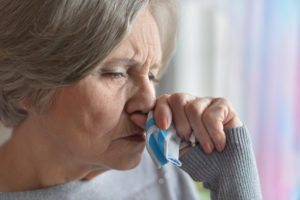 Sneezing, sniffling, runny nose, and even itchy eyes may be spring allergies. Even if your parent never experienced this previously, they just might this year. Although you may not have thought of this winter as mild, statistically, it was. Some days throughout the season there were spring-like temperatures and early thaws, only to be followed by snow, ice, and deep freezes.
Sneezing, sniffling, runny nose, and even itchy eyes may be spring allergies. Even if your parent never experienced this previously, they just might this year. Although you may not have thought of this winter as mild, statistically, it was. Some days throughout the season there were spring-like temperatures and early thaws, only to be followed by snow, ice, and deep freezes.
Battling Allergies: What to Do
Researchers are advising of an allergy frenzy spring, and anyone at any age can develop allergies, especially seniors. If they do, they should notify their doctor. Allergy symptoms can be dangerous if your mother or father has a cardiovascular disease, as those with heart problems should not take an antihistamine to relieve their symptoms.
Mom or dad may need to take a prescribed allergy medication, and learn to wash their hands and face when coming in from out of doors to reduce any excess pollen they may be bringing into the home.
Antioxidants help reduce allergy symptoms because they neutralize cell damage in the body and if allergies are causing cell damage, eating well will be a major step to healthier living. Maintaining a nutritional diet including leafy greens, apples, and foods high in Vitamin C, are all excellent choices filled with antioxidants.
If spring allergies continue to weaken mom or dad’s immune system or overall quality of life, once again it may be time to seek further medical care. Spring allergies may be a nuisance. However, if seniors become ill due to these allergies, it’s time to seek additional advice.
Get Help from a Caregiver
While our home health aides may not be able to provide medical services, they can remind your loved one to take their allergy medications. They can also provide companionship if they can’t go outside due to the allergens.
Give us a call at (239) 337-4263 for a free consultation regarding our home care services and how we can help your loved one.
